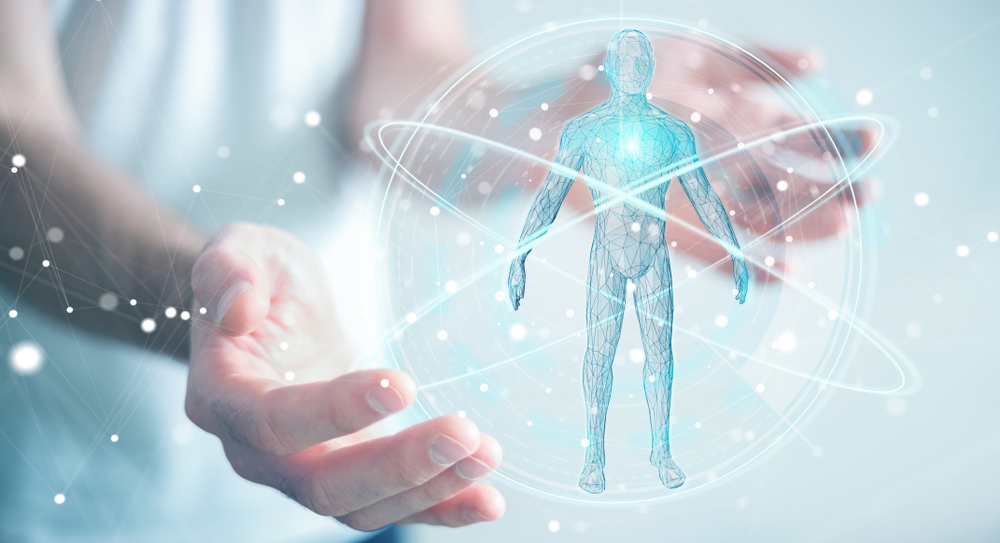AI large language models that can mimic human prose are generating lots of excitement but the most significant long-term opportunity may be unlocking the language of life.
That’s the premise behind Bioptimus a newly launched French company that aims to build the first universal AI large language model (LLM) in biology.
While a few startups are leveraging LLMs for specific areas of biology, such as the design of novel protein therapeutics, Bioptimus believe it is the first to try and build a model that will be trained on data that’s necessary to understand multiple biological processes and how they connect with each other. The aim is to address many different scales of biology, including organs, tissues, cells, molecules, and atoms, to gain a holistic view of how the human body functions and advance the treatment of disease.
Even simple biological systems are made up of a huge number of components that interact with one another in complicated ways that are not yet understood. The hope is that amassing of huge datasets and the application of AI will allow researchers to gain fuller, more accurate pictures of complex biological systems.
Improvements in AI over the past two years are a step-change in the field, Professor Jean-Philippe Vert, PhD, co-founder and CEO of Bioptimus, chief research and development officer at Owkin and a former Research Lead at Google Brain, said in an interview with The Innovator. “We have reached a point where we have the recipes and the know-how to train AI systems,” he says. “Just as large language models are being trained using text written in human language, we can show it data written in other languages – like the language of nature – and capture the laws of biology.”
One of the key forces behind the dramatic recent progress in artificial intelligence is so-called “scaling laws” : the fact that radical improvements in performance result from continued increases in LLM parameter count, training data and compute.
In the short-term applying LLMs to patient data could help accelerate the development of new drugs and precision medicine, says Vert. Longer term it has the potential to help create digital twins of individuals to capture and monitor the state of the body, making disease prevention easier, he says.
To achieve those goals Bioptimus is assembling a team of scientists that includes Google DeepMind alumni as well as scientists from Owkin, a French unicorn and a member of the World Economic Forum’s Global Innovators Community.
DeepMind, which is owned by Google parent company Alphabet, in late 2020 used an AI system called AlphaFold (which does not use large language models) to produce a solution to protein folding that humans could not solve. Because a protein’s shape is closely linked with its function, knowing a protein’s structure unlocks a greater understanding of what it does and how it works, helping accelerate scientific research and discovery globally. Within 12 months AlphaFold was accessed by more than half a million researchers and used to accelerate progress on important real-world problems ranging from plastic pollution to antibiotic resistance.
Owkin, for its part has been using early versions of AI to identify new treatments, de-risk and accelerate clinical trials and develop AI diagnostics. It founded MOSAIC, the world’s largest multi-omics atlas for cancer research. Multi-omics is a new approach that combines the data sets of different modalities: in this case bulk, single-cell and spatial transcriptome, genome, pathology slide, and clinical data.
Alumni from both companies who are now working for Bioptimus are optimistic that they can make further – potentially radical – improvements to healthcare by applying LLMs to biology.
Accelerating Precision Medicine
One of the most highly anticipated use cases of AI is in precision medicine, where treatments are tailored to each individual patient’s biology. However, the volume of data analysis required to develop highly targeted treatments is enormous.
With AI-enabled screening, biochemists can shorten the search to find disease drivers and potential drug candidates, simplifying the drug discovery program and advance the development of targeted therapies.
Not only does AI make precision medicine more accessible, it also highlights some of the shortcomings of current treatment approaches for complex diseases. For example, cancers can differ from patient-to-patient, both genetically and symptomatically, yet different patients often receive the same treatment. While there’s been critical strides made in the development of more personalized treatments, the introduction of AI tools is expected to fast-track advances.
Outside of the lab, data from real patients in hospitals is being leveraged to inform treatment approaches. Owkin is addressing privacy concerns by using federated machine learning, a decentralized training model that prevents patient data from ever leaving a hospital’s server..
Successful implementation of federated learning – along with the utilization of LLMs and combining data sets- could hold significant potential for enabling precision medicine at scale, helping match the right treatment to the right patient at the right time.
Bioptimus said it expects to benefit from Owkin’s data generation capabilities and federated access to multimodal patient data sourced from academic hospitals worldwide. Fueled by scaleable computing resources from Amazon Web Services that will power the LLMs and an abundance of data from all scales and modalities, the newly launched French company says it believes it will have the power to create computational representations that establish a strong improvement over models trained solely on public datasets and a single data modality.
Bioptimus’ approach has an “unprecedented potential to personalize medicine, capturing the uniqueness of each individual while harnessing the collective knowledge,” Edward Kliphuis, a partner at venture firm Sofinnova Partners, which led a $35 million seed round of funding into Bioptimus in February, said in a statement. Other investors in Bioptimus include Bpifrance Large Venture, Frst, Cathay Innovation, Headline, Hummingbird, NJF Capital, Owkin and Top Harvest Capital as well as well-known French tech entrepreneur Xavier Niel.
Seeking Game-Changing Impact
Bioptimus expects to release its first LLMs later this year, says Vert, who will not have an operational role at Bioptimus and keep his role at Owkin. Instead of creating one big model for everything at the beginning Bioptimus will start with different modalities and connect them, he says. Its target customers will be pharmaceutical and biotech companies. It will use as software-as-a-service licensing model. Owkin will be among the first customers as Bioptimus’ foundational models are expected to provide better diagnostics.
At the same time, Owkin is expected to open doors for Bioptimus to access biomedical data from hospitals and collaborate on the analysis of spatially resolved transcriptomics data from the MOSAIC atlas. Biochemists are excited about applying LLMs to not just analyze images of cancerous tumors but understand which proteins and genes are expressed, furthering understanding of how the body’s immune system works, says Vert. “It’s a unique opportunity to describe tumors in a micro-environment.”
What will success look like for Bioptimus? In the short to medium term, Vert says “if we can get companies and institutes to take advantage of our LLMs and improve diagnostics of cancer by 2% to 5% I would consider that to be success.” Longer term, he says, as artificial intelligence and large language models unlock biology’s secrets, the impact on overall human health and wellness could be game-changing.
This article is content that would normally only be available to subscribers. Sign up for a four-week free trial to see what you have been missing.
To read more of The Innovator’s Focus On AI articles click here.






